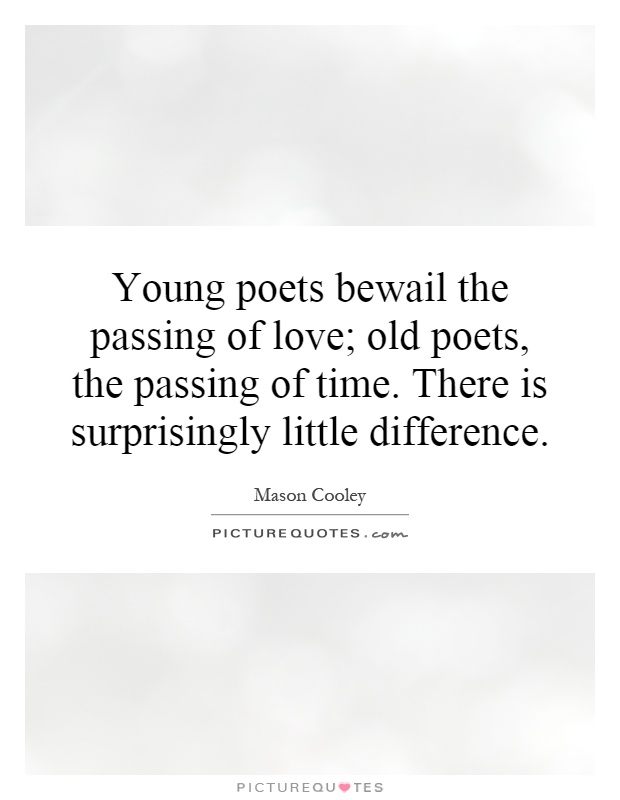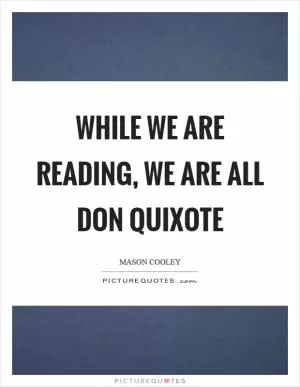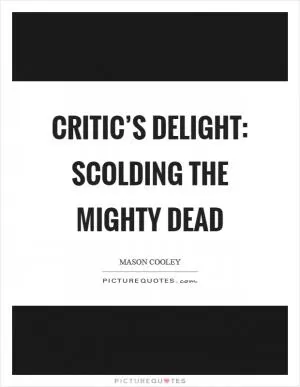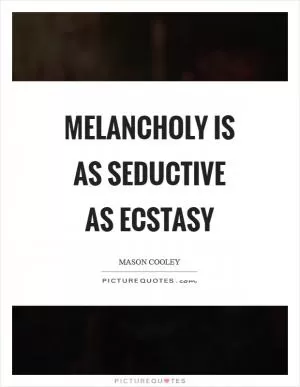Young poets bewail the passing of love; old poets, the passing of time. There is surprisingly little difference

Young poets bewail the passing of love; old poets, the passing of time. There is surprisingly little difference
Mason Cooley, a renowned aphorist and poet, often explored themes of love and time in his works. The quote "Young poets bewail the passing of love; old poets, the passing of time. There is surprisingly little difference" encapsulates the universal human experiences of love and aging that Cooley frequently delved into.For young poets, love is often a central theme in their work. They are captivated by the intensity of emotions that come with falling in love, the highs and lows of relationships, and the heartbreak that can accompany lost love. Their poetry is filled with passion, longing, and a sense of urgency to capture and preserve the fleeting moments of love before they slip away. However, as Cooley suggests, the passing of love is a theme that resonates with poets of all ages. Love is a timeless and universal experience that transcends age, and the emotions it evokes remain constant throughout one's life.
On the other hand, old poets often reflect on the passage of time and the inevitability of aging. They grapple with the realization that time is fleeting, and that they are growing older with each passing day. Their poetry is imbued with a sense of nostalgia, reflection, and acceptance of the impermanence of life. The passing of time becomes a poignant reminder of mortality and the transient nature of existence. Cooley's observation that there is little difference between the passing of love and the passing of time underscores the interconnectedness of these two themes in the human experience.












 Friendship Quotes
Friendship Quotes Love Quotes
Love Quotes Life Quotes
Life Quotes Funny Quotes
Funny Quotes Motivational Quotes
Motivational Quotes Inspirational Quotes
Inspirational Quotes